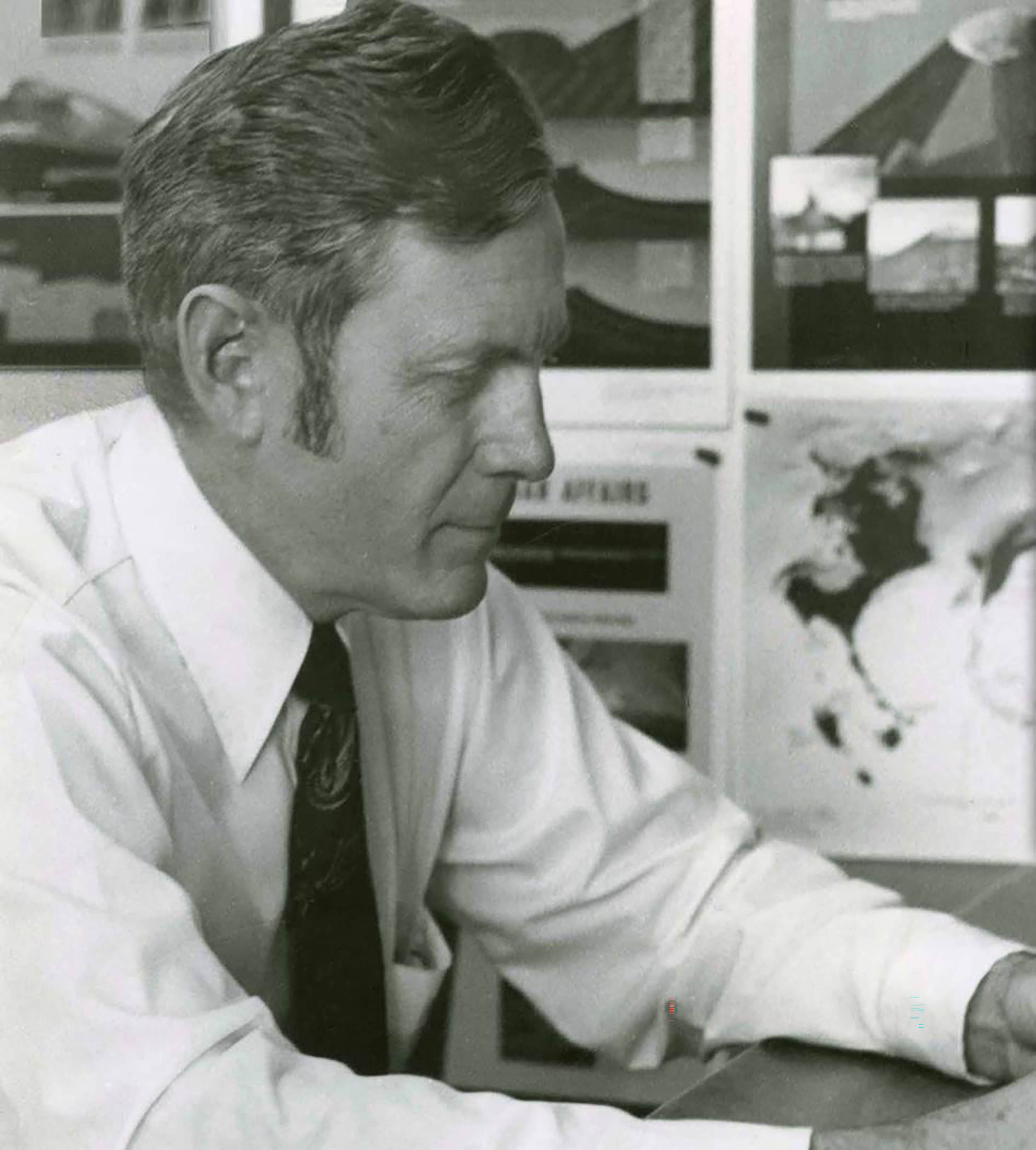Dwight R. 'Rocky' Crandell (January 25, 1923 - April 6, 2009) was a noted volcanologist at the U.S. Geological Survey best known for his studies of volcanoes in the Pacific Northwest. Born in Galesburg, Illinois, Crandell attended the local Knox College where he studied geology (earning him his nickname), then joined the U.S. Army in World War II, reaching the rank of Lieutenant. After the war, he received a doctorate at Yale University and afterwards (in 1951) went to work for the U.S.G.S. in Golden, Colorado, near Denver. Crandell and Donal R. Mullineaux (1925 - 2021) were assigned to study the geology of the Puget Sound region. In the process, they discovered and documented that the area's geology had not been formed by glaciers, as previously thought, but largely by activity from the presumed-dormant Cascade Volcanoes. The pair pioneered the study of volcanic ash, mudflows, and pyroclastic flows, as opposed to hardened lava flows, to determine future risk of eruptions. Realizing that so many volcanoes were recently active and could erupt again in the near future, causing considerable damage to life and property in the process, Crandell and Mullineaux developed a methodology for volcano hazard assessment. In 1978, they correctly predicted that Mt. St. Helen's could erupt in the following twenty years, and in fact it erupted only two years later to disastrous effect. Combining lessons learned from the disaster with Crandell and Mullineaux's research, better early warning and disaster preparedness systems were developed after 1980.


